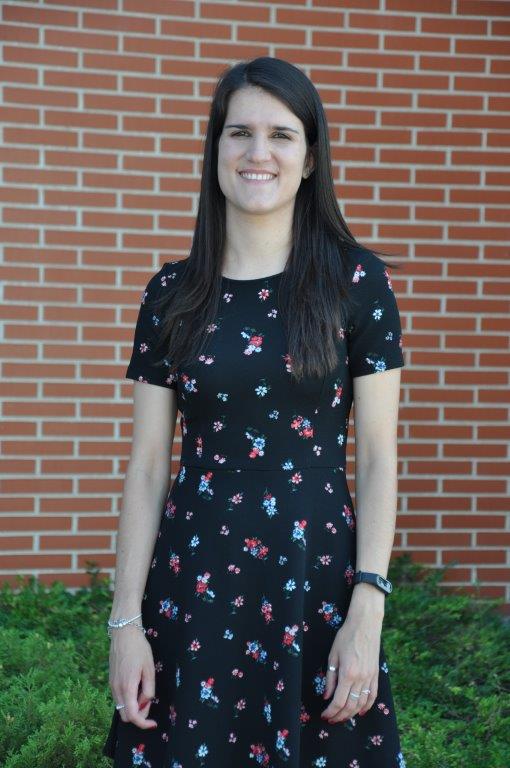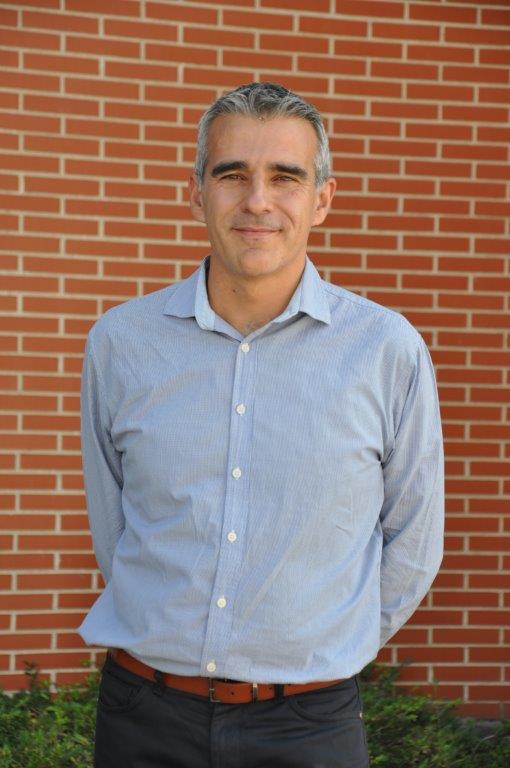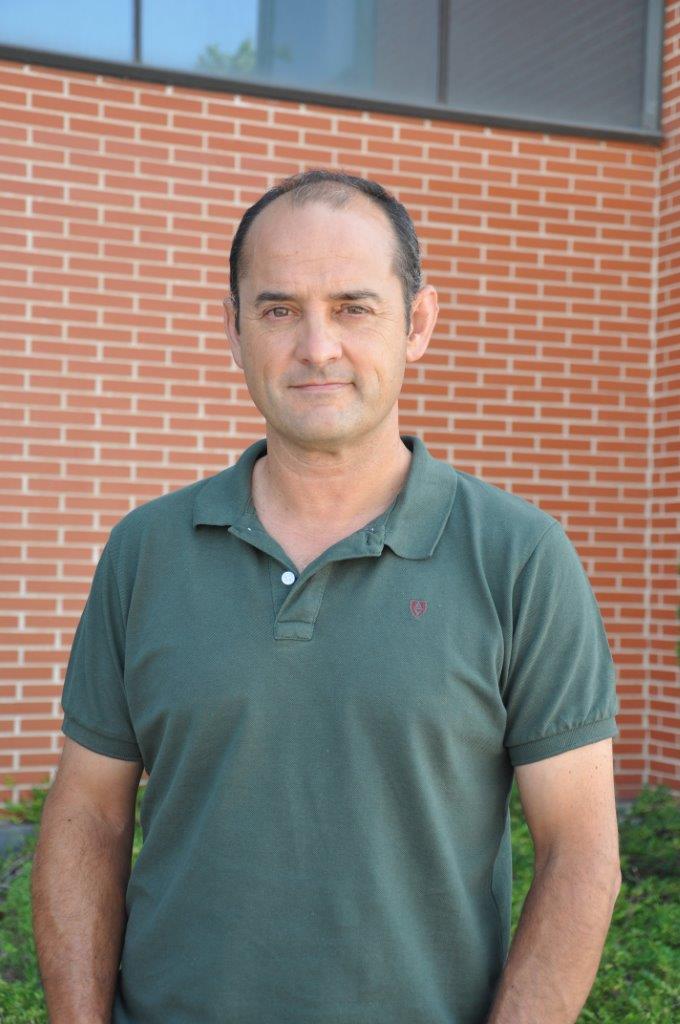Alicia Lozano-Diez [e-mail] [Google Scholar]

Alicia Lozano-Diez received the double degree in Computer Science Engineering and Mathematics from Universidad Autónoma de Madrid (UAM), Spain, in 2012, and the postgraduate Master in Research and Innovation in Information and Communications Technologies (I2-TIC) from the same University in 2013. Since 2012, she has been with the Audias research group at UAM. During her Ph.D., in 2015 and 2017, she joined for 4 and 2 months research internships the Speech group (Speech@FIT) at Brno University of Technology (BUT, Brno, Czech Republic). In the 2016 summer, she interned at SRI International (STAR Lab, California, USA). Her research is mainly focused on deep neural networks (DNN) based systems for automatic language and speaker recognition. She finished her Ph.D. in 2018 and got an assistant professor position at the UAM, continuing her research at the Audias group. In 2019, she got the H2020 Marie Curie funding for the project “Robust End-To-End SPEAKER recognition based on deep learning and attention models” and joined the Speech@FIT (BUT) for almost two years as a post-doc researcher, and will resume to her assistant professor position at UAM after the project finishes.
Daniel Ramos [e-mail] [Google Scholar]

Dr. Daniel Ramos finished his PhD in 2007 in Universidad Autonoma de Madrid (UAM), Spain. From 2011, he is an Associate Professor at the UAM. He is a staff member of AUDIAS Group. During his career, he has visited several research laboratories and institutions around the world, including the Institute of Scientific Police at the University of Lausanne (Switzerland), the School of Mathematics at the University of Edinburgh (Scotland), the Electrical Engineering school at the University of Stellenbosch (South Africa), and more recently the Netherlands Forensic Institute and the Computational and Biological Learning Lab of the University of Cambridge. He has been visiting professor at the Universidad de Buenos Aires in 2019. His research interests are focused on forensic evaluation of the evidence using Bayesian techniques, probabilistic calibration, validation of forensic evaluation methods, speaker and language recognition and, more generally, signal processing and pattern recognition. Dr. Ramos is actively involved in the research of development of different aspects of forensic science, including the statistical evaluation of speech and chemical evidence (mainly glass). He has been invited by the NIST to several workshops, including the OSAC standardization initiative. He is author of multiple publications in national and international journals and conferences, some of them awarded. He has also participated in several international competitive evaluations of speaker and language recognition technology, since 2003. Recently, he is working on signal processing and machine learning for industrial applications in the energy sector. Dr. Ramos is regularly a member of scientific committees in different international conferences, and he is often invited to give talks in conferences and institutions.
Doroteo Torre Toledano [e-mail] [Google Scholar]

Doroteo Torre Toledano, received the M.S. degree in 1997, and the Ph.D. in Electrical and Electronic Engineering in 2001, both from Universidad Politecnica de Madrid, Spain. He has been recipient of several academic awards, such as the First National Bachelor Award of Spain, the best academic record in Electrical and Electronic Engineering and a Ph.D. Dissertation Award from the Spanish Association of Telecommunication Engineers. After his Ph.D., he joined M.I.T. as Postdoctoral Research Associate in the Spoken Language Systems Group (2001-2002), under the supervision of Profs. Victor Zue and James Glass. He has also experience working in the industry, in particular in the Speech Technology Division of Telefonica R&D, where he worked from 1994 to 2001 and also in 2003. His trajectory as professor in signal processing starts in 2004, when he joined Universidad Autonoma de Madrid, where he is currently Full Professor. Prof. Toledano has over 25 years of experience in speech processing, over 100 scientific publications. He has participated in 6 EU research projects and in over 40 national projects (in 10 of them as principal investigator). He has participated in over 15 technological competitive evaluations (mainly NIST evaluations) and has organized three. He was General Co-Chair and main organizer of IberSPEECH 2012, and organizer and session chair of several other conferences. Prof. Toledano current research is focused on audio, speech, speaker and language recognition. Since July 1st 2018 he is the new Director of the AUDIAS research group.
Joaquin Gonzalez-Rodriguez [e-mail] [Google Scholar]

Joaquin Gonzalez-Rodriguez, Ph.D. (1999) in Electrical Engineering from Univ. Politecnica de Madrid (UPM), Spain, founded in early 2000s and co-led the ATVS Biometric Recognition Group up to october 2016, when ATVS splits his current activities in two groups, AUDIAS and BidaLab. In 2004, ATVS leaders started-up Agnitio, a speaker recognition company spin-off from ATVS technology, acquired by Nuance in 2016 which was later acquired by Microsoft. He led from 2016 to 2018 the AUDIAS Research Group which resumes the ATVS activities in speech and audio, now devoted to Research and Development in the areas of Speech and Audio, Deep Learning, Artificial Intelligence and Large Language Models, Temporal Signals Processing (Sensor arrays, Industrial signals, Biomedical sensors, Financial series, etc.), protein Language Modeling (pLMs) and genomics, Forensic Science and Data Intelligence in general. Since July 2011 he is a Full Professor in the Electronic and Communication Technologies Department at Universidad Autonoma de Madrid (UAM). He has led ATVS/AUDIAS participations in multiple NIST Speaker and Language Recognition Evaluations since 2001, and he is since 2000 an invited member of the FSAAWG (Forensic Speech and Audio Analysis Working Group) in ENFSI (European Network of Forensic Science Institutes). In September 2008, he addressed in Brisbane (Australia) a keynote plenary talk in Interspeech, the world biggest speech technologies conference, entitled “Forensic Automatic Speaker Recognition: Fiction or Science?”. In 2008 he received a Google Faculty Research Award (https://research.google/outreach/past-programs/faculty-research-awards/?category=2008, category “Speech”) funding the project entitled “Exploiting prior knowledge for robust recognition and indexing of audio information sources”. During academic term 2010-2011, he was on sabbatical leave as Visiting Scholar at the Speech Group at ICSI (International Computer Science Institute) in the University of California at Berkeley. From September 2017 to December 2023, he was vicedean for research and innovation at his faculty (EPS-UAM). His current research interests are focused on speech processing and large language models, deep learning and artificial intelligence, audio and music event detection, protein Language Models and forensic science.
